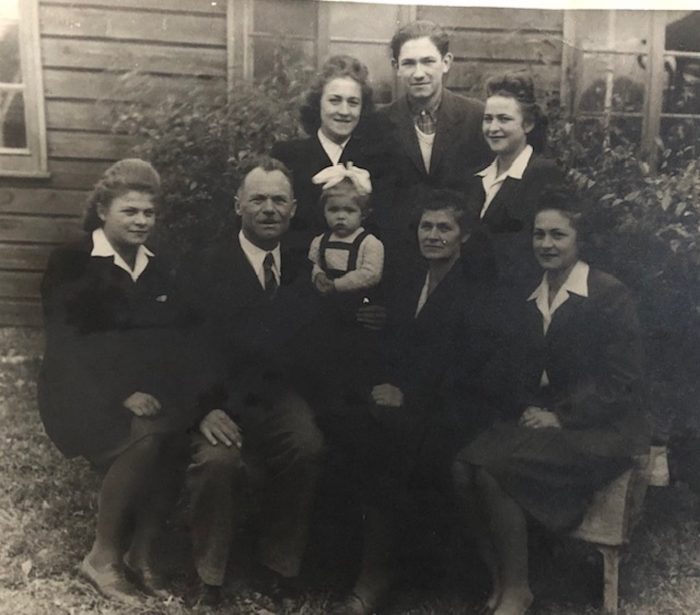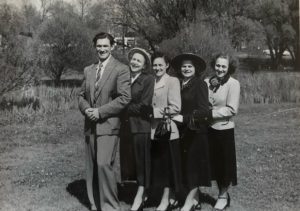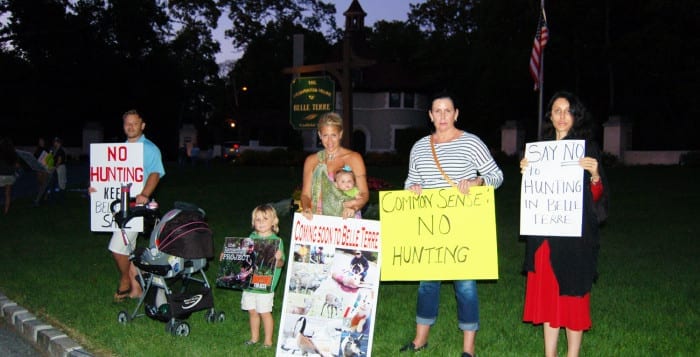Not a rebuttal
Stefanie Werner’s letter, “Missing the Boat: A Rebuttal to the Three Village Start-Time Debate” [Village Times Herald, Nov. 28], raises questions about her understanding of the term “rebuttal.” A rebuttal requires more than simply using dismissive terms like “lackluster,” “inane,” “nonsense,” “so-called,” “half-cocked” and “fantasy.” If Ms. Werner has objective evidence contradicting the extensive, peer-reviewed research supporting the benefits of later school start times, she should present it — perhaps even publish it.
In any case, she seems to have misunderstood a key point: research does clearly demonstrate that even a 30-minute delay in start times yields measurable benefits. So the planned 35-minute shift from 7:05 to 7:40 qualifies. If we fully followed the American Academy of Pediatrics’ recommendation of an 8:30 a.m. or later start, we would likely see even greater positive effects.
What remains open to good-faith debate is whether the proven benefits to students’ health and academic performance outweigh the financial costs — estimated at less than 0.5% of the district’s budget, according to the BOE — and other trade-offs. Perhaps they don’t. But Ms. Werner should address these trade-offs with honesty, presenting accurate data on potential impacts to class sizes, electives and other logistical concerns.
John Hover
East Setauket
New Yorkers need expanded access to creative arts therapy, a vital treatment in mental health care
Mental health issues are not one-size-fits-all and neither should be the design of their treatment. Due to a multitude of unique cultures and life experiences, the availability of a variety of approaches is required to meet the mental health needs of New Yorkers. Take the case of my patient, “Rose.”
Rose survived a horrific automobile accident. Afterward, she struggled with physical pain, anxiety and fear. As a licensed creative arts therapist (LCAT) and music therapist at a Long Island hospital, I worked with Rose to help her cope through her recovery. Rose was additionally impaired by a word retrieval problem caused by her traumatic injury, but she soon discovered she could convey her thoughts and feelings eloquently through the language of music. During individual music therapy sessions, she learned tools to reduce her anxiety and process her emotions. In collaborative sessions with her physical therapist, Rose experienced the priming effect of music and its ability to promote steadiness and motivation. Her explanation of how music therapy integrated the healing of her mind and body was clear: “the music held the pain for me.” And then her music therapy treatment had to stop.
Due to current New York State law, Medicaid insurance would not cover Rose’s therapy with an LCAT once discharged from the hospital. However, a new bill (A9018/S8715) has been presented to Gov. Kathy Hochul (D) that seeks to amend the law, permitting LCATs, like other licensed mental health practitioners, to bill Medicaid directly for mental health services to Medicaid patients.
LCATs are master’s and doctoral-level licensed mental health professionals trained in clinical psychotherapy and a specific arts discipline (music, dance/movement, drama and art therapy). LCATs offer unique, evidence-based techniques to foster healing and recovery. Rooted in the world of images and sound, creative arts therapies tend to be less reliant on verbal interchanges, opening a dimension to self-expression and emotional exploration to those who may have difficulty with talk therapy. Far from one-size-fits-all, these interventions are individualized and tap into the patient’s potential to create, develop and change. Research studies highlight creative arts therapy as a low-risk, high-benefit category of intervention.
In my work, I have seen people, seemingly broken, rise through the ashes of their pain and trauma, empowered by a piece of music that speaks their truth like nothing else could. Whatever the medium, engaging in the creative process in a therapeutic context can be transformative. Rose, and others on Medicaid, should not be deprived of this treatment opportunity. I call upon Gov. Hochul to sign the Medicaid bill and expand access to these life changing therapies.
Ilene “Lee” Berger Morris lives and works on Long Island, and is a board-certified music therapist and licensed creative arts therapist.
Ilene “Lee” B. Morris, MM, LCAT, MT-BC
Neurologic Music Therapist
Member of the American Music Therapy Assoc.
Member of The Academy of Neurologic Music Therapy
In response to “Clarifying Roles: Code Officers don’t need firearms
Mr. Drew Biondo has written a very well composed letter to the Editor advocating that Village Code Officers do not need firearms. He is technically correct. Their primary job is “code enforcement.”
The question I raise is: are Village Constables Parking Meter Readers or are they an aide to the local police? My experience indicates that they are the invaluable eyes and ears for the local police. They are usually the first on the scene when an unfortunate accident or crime occurs.
Yes, they are “Peace Officers”, and I value their role in Belle Terre and especially in Port Jefferson which has many transient visitors.
Now, if you want “Meter Readers” issuing parking tickets, etc., then take away their firearms. Take away their uniforms too. Do you think that an armed criminal differentiates between a Constable or a SCPD Officer? Who is going to apply for your Constabulary positions. Not a retired SCPD Officer when you tell them to leave their personal firearms at home.
We don’t live in Rural Vermont. We have an active and fun community. Let’s keep it that way. I believe we had a shooting on Main Street last year. I was shocked! But this happened in Port Jefferson! Two nights ago in Belle Terre, a car with 3 kids under the age of 23, smashed into a tree on Cliff Road. The car exploded into flames. The Belle Terre Constabulary were on the scene within 2 minutes to pull the kids out of the car to save their lives. The Constables are trained professionals, and they saved 3 lives. They are not Meter Readers and respond more as trained first responders.
The local residents and I have always respected the Port Jefferson Constabulary. In my professional opinion, if it is not broken, why fix it. These constables provide a valuable service to the residents and to the community.
Ted Lucki
Former Belle Terre Mayor
An open letter to Port Jefferson Station/Terryville residents and neighboring communities
The Port Jefferson Station /Terryville Civic Association would like to remind everyone of a very important meeting next week about a significant proposal impacting our community and others like ours nearby. We are hopeful of having as many of our residents and concerned neighbors attend our Civic Association meeting scheduled for Tuesday, December 17, 7 p.m. at the Comsewogue Public Library.
We will hear a presentation from Recall Strategies who represent New Leaf Energy, Inc. New Leaf Energy is a renewable energy developer proposing to build an 8-10 MW Battery Energy Storage System at 1577 NYS Rt. 112 in Port Jefferson Station. This proposed site is nearly adjacent to the Sagamore Hills Condominium Complex on Rt. 112 in Port Jefferson Station and very proximate to Comsewogue High School.
This relatively new technology for an energy center for lithium-ion battery storage has stimulated a lot of discussion and some controversy in our area so it is important that all community members be informed. In turn, we need to ensure our collective voices and views are heard by our elected officials in Brookhaven Town who have the responsibility for overseeing any activity of this nature at that location. We strongly encourage all our Civic members, residents and neighboring friends to attend this meeting. Please pass this meeting’s topic to any of your neighbors, family and friends that live in or near Port Jefferson Station/Terryville.
As I wrote in last week’s issue (see “Community Call to Action,”.Port Times Record, Dec. 5), this is not the only Lithium Battery Storage Facility proposed nearby. Savion Energy is looking to build a 350 MW Lithium Battery Storage Facility in Setauket on the border of Port Jefferson Station, at the Chip-It All site on Sheep Pasture Road. This may be the largest facility proposed on Long Island, The health and safety of the shared resources with our neighbors in the Three Villages and Port Jeff Village should provide the impetus for mutual consideration of the benefits and/or risks associated with this use which seems poised to proliferate throughout the region of our Town. To paraphrase our namesake, Thomas Jefferson, “the best defense of democracy is an informed citizenry.” Let’s stand up for democracy and show up on December 17th to continue together to safeguard the quality of life in our area by participating and staying informed!
Ira Costell, President
Port Jefferson Station/Terryville Civic Association









